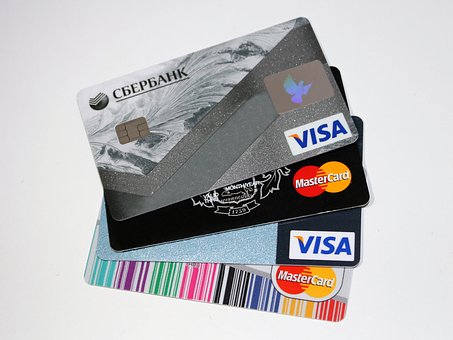When a credit card owner buys a product using a credit card, the issuing bank pays cash on behalf of its customer, and the customer is given a specific time in the future to pay the debt.
Credit cards offer loans, also called lines of credit, that can be used for balance transfers, cash advances, and purchases. They require that the loan is paid back, usually, at the end of the month.
All credit card holders must be able to make, at least, the minimum monthly payment by the due date. Below are more facts every credit cardholder should know.

1. You’ll Have a Credit Limit
The credit limit is the maximum amount of credit that a lender or a financial institution extends to a client. It is sometimes called a line of credit, tradeline, or credit line.
Lenders usually set credit limits on the grounds of the information given by the person seeking credit. The credit limit is critical because it affects consumers’ credit scores, which are considered by lenders to give out credit in the future. In the same vein, low-risk debtors are usually given higher credit limits, and high-risk borrowers get lower credit limits for the same reason.
2. There Is a Grace Period
The “grace period” is a period, usually 25 days long, that is given to the credit card holder to pay back the outstanding debt. If a credit bill is paid in full within the grace period, then there will be no interest charges to pay, which are usually levied on late credit payments or those that carry a balance month-to-month.
3. You Almost Always Have to Pay Interest
Every credit card holder should keep in mind that every time you use a card, you are borrowing money. As is the norm in financial institutions, failure to pay the debt in full each month means you will be charged an interest rate. Sometimes, this rate can be quite costly.
Credit card interest rates can be as low as 18% or as high as 36% depending on your credit history. Some special cards reward people with good credit ratings by offering 0% for a time or low introductory APRs.
4. You Can Incur Late Fees
Late fees are levied on a credit card holder that fails to pay their credit balance by the due date or expiry of the grace period. It is always costly to pay late, so it is advisable to get organized and pay bills on time. Late fees can be as high as 35% for some cards. However, the good news is that this can be avoided by paying on time.
5. You Can Choose “Secured” Credit Cards
“Secured” credit cards are given to people with no credit history at all or a poor one. The card is “secured” with a cash balance (for example, a savings account). This money cannot be touched, or else you risk deactivating your card. These credit cards are considered the best option for a first-time credit card user because they offer convenience and at the same time build your credit history.
6. You May Have to Deal with a Lost or Broken Credit Card
If your card is broken or lost, inform your credit card company as soon as possible. Thieves only need the card number to make unauthorized charges today and don’t necessarily need to steal the actual card and access your credit. Keep all your receipts for accountability and inform the company in case your card is used without your permission.
7. You’ll Receive a Credit Report
A credit report is a history of your borrowing and paying habits. This is important and is looked at when one is applying for a credit card in the future. It also affects your ability to be approved for services like insurance, leasing an apartment, or even buying a car.
8. You’re Expected to Pay the Minimum Monthly Payment
When the minimum fee is subtracted from your balance, charges are added to your final balance. These finance charges increase month after month and can put one into a financial crisis very fast. Therefore, this should be avoided.
The minimum payment is the smallest amount of money one pays to keep the credit card active. If you pay less, your credit card will be disabled.
9. You Must Consider the Cardholder Agreement
One doesn’t have to sign any document to agree to the cardholder agreement. By using your card, you are automatically agreeing to the cardholder agreement. This will subject you to all of the terms and conditions listed in the agreement.
10. You Can Choose Cards with Rewards Systems
Lucky for cardholders, many banks or credit companies choose to reward their customers by implementing rewards programs in the card agreement. Many cards offer cashback systems when you buy from select purchase categories, and some even work solely for purchasing through one company (like Amazon, for example).
Make sure to keep an eye on the rewards, some have expiration dates and are only redeemable for a certain time period.
Conclusion
If credit cards are used properly, they can be convenient and very helpful. However, when not put to proper use, they can put one into a mountain of debt that can take years to pay fully. Keep the above facts in mind and use your credit cards wisely.
